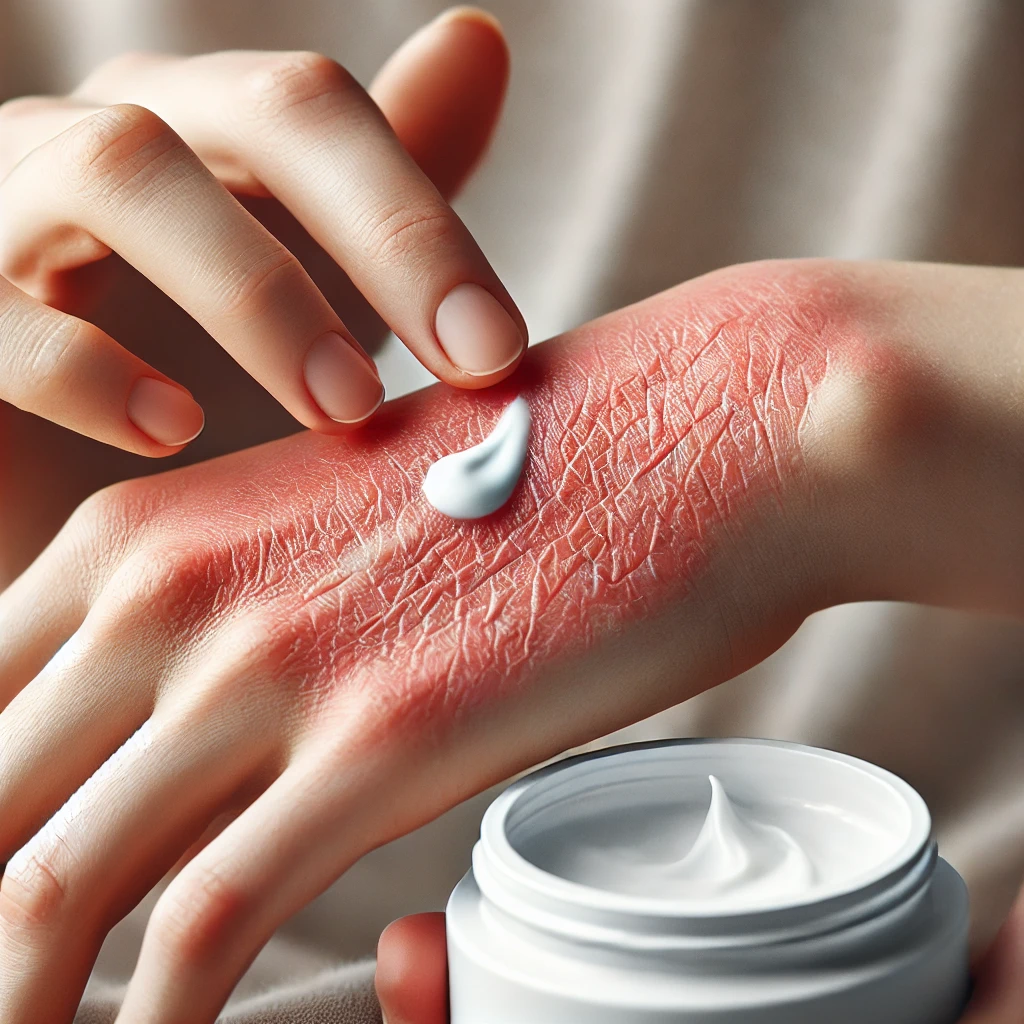Eczema, or atopic dermatitis, is a common skin condition that causes red, itchy, and inflamed patches on the skin. While it’s a persistent and sometimes frustrating condition, understanding its causes and learning effective management techniques can make life with eczema much easier. Let’s dive into what eczema is, what triggers it, and how to soothe and manage the symptoms.

What is Eczema?
Eczema is a chronic skin condition that affects millions of people worldwide. It’s characterized by flare-ups, where the skin becomes extremely dry, itchy, and inflamed. These flare-ups can range from mild discomfort to severe irritation, often disrupting daily life. Although the exact cause is unknown, eczema is linked to an overactive immune response to irritants.
Common Triggers of Eczema
Eczema flare-ups can be triggered by various factors. Identifying your personal triggers is key to keeping symptoms under control. Here are some common culprits:
- Allergens: Pollen, pet dander, and dust mites.
- Irritants: Harsh soaps, detergents, and synthetic fabrics.
- Weather: Cold, dry air or hot, humid conditions.
- Stress: Emotional stress can exacerbate symptoms.
- Dietary Factors: Certain foods like dairy, eggs, or nuts might trigger flare-ups in some people.
Managing Eczema Symptoms: A Playful Yet Serious Approach
Managing eczema involves a mix of prevention, soothing care, and consistent routines. Let’s explore some practical steps:
1. Moisturize Like a Pro
Keeping your skin hydrated is non-negotiable. Look for thick, fragrance-free creams or ointments that lock in moisture. Apply immediately after showering to seal hydration.
2. The Art of Gentle Cleansing
Skip the hot showers and harsh soaps! Opt for lukewarm water and mild, soap-free cleansers to avoid stripping your skin’s natural oils.
3. The Great Trigger Hunt
Play detective and keep a journal of what might set off your eczema. Noticed a flare-up after a spicy meal or on laundry day? That’s your cue to dig deeper.
4. Dress for Success
Loose, breathable clothing made from natural fibers like cotton can prevent irritation. Say goodbye to scratchy sweaters!
5. Stress Less, Glow More
Practice relaxation techniques such as meditation, yoga, or even just deep breathing. Stress reduction can work wonders for your skin and your sanity.
Over-the-Counter and Medical Treatments
Sometimes, eczema needs a little extra help. Over-the-counter hydrocortisone creams can reduce itching and inflammation during mild flare-ups. For persistent or severe symptoms, consult a dermatologist who may prescribe:
- Topical Steroids: For reducing inflammation.
- Immunosuppressants: To calm an overactive immune system.
- Biologic Treatments: For severe cases not responsive to other methods.
Diet and Eczema: Food for Thought
Your skin’s best friend might be your plate! Incorporate foods rich in omega-3 fatty acids (think salmon and walnuts) to reduce inflammation. Avoid potential allergens and consult a nutritionist if you suspect certain foods are triggers.
Building Your Eczema Toolkit
Managing eczema isn’t a one-size-fits-all solution. Build your personalized eczema toolkit with these essentials:
- A quality moisturizer
- A gentle cleanser
- Soft, breathable clothing
- A humidifier for dry seasons
- Stress-management techniques
Final Thoughts: Embrace Your Journey with Eczema
Eczema may not have a cure, but with the right strategies, you can take control of your symptoms and live a full, comfortable life. Remember, every step you take to understand your skin brings you closer to calm, happy skin days. Got an eczema tip or product you swear by? Share it with others—it might just be the thing they need!
